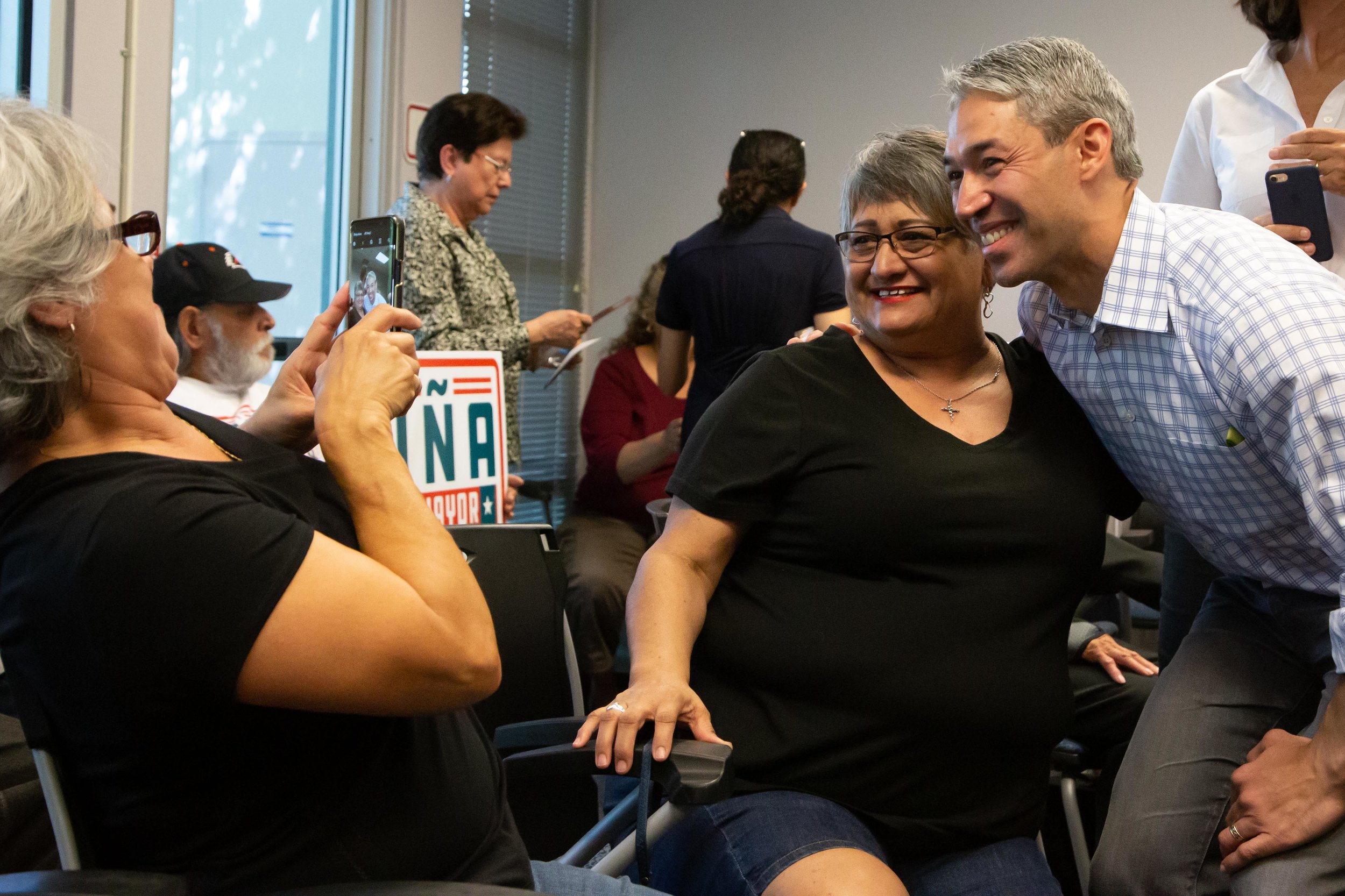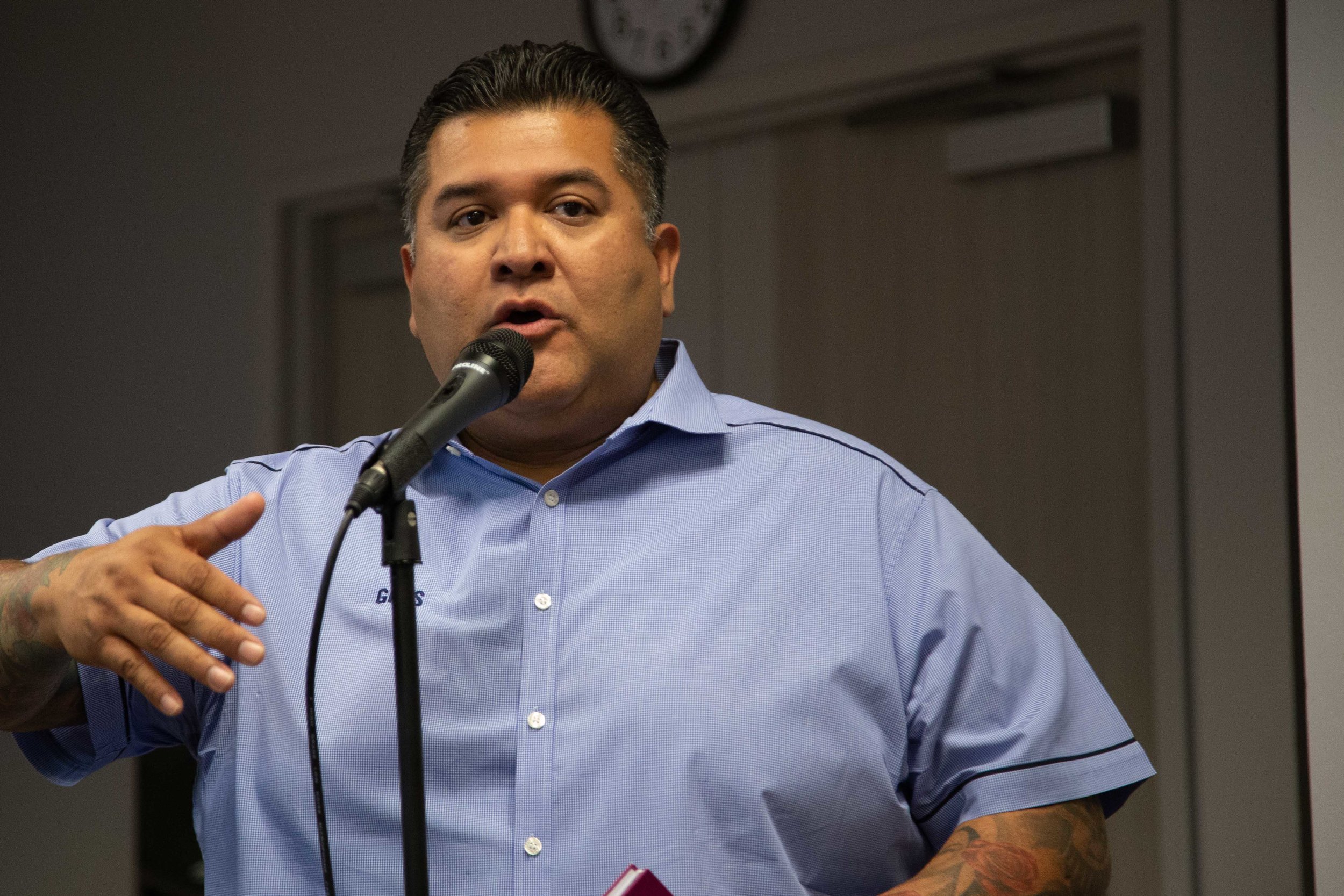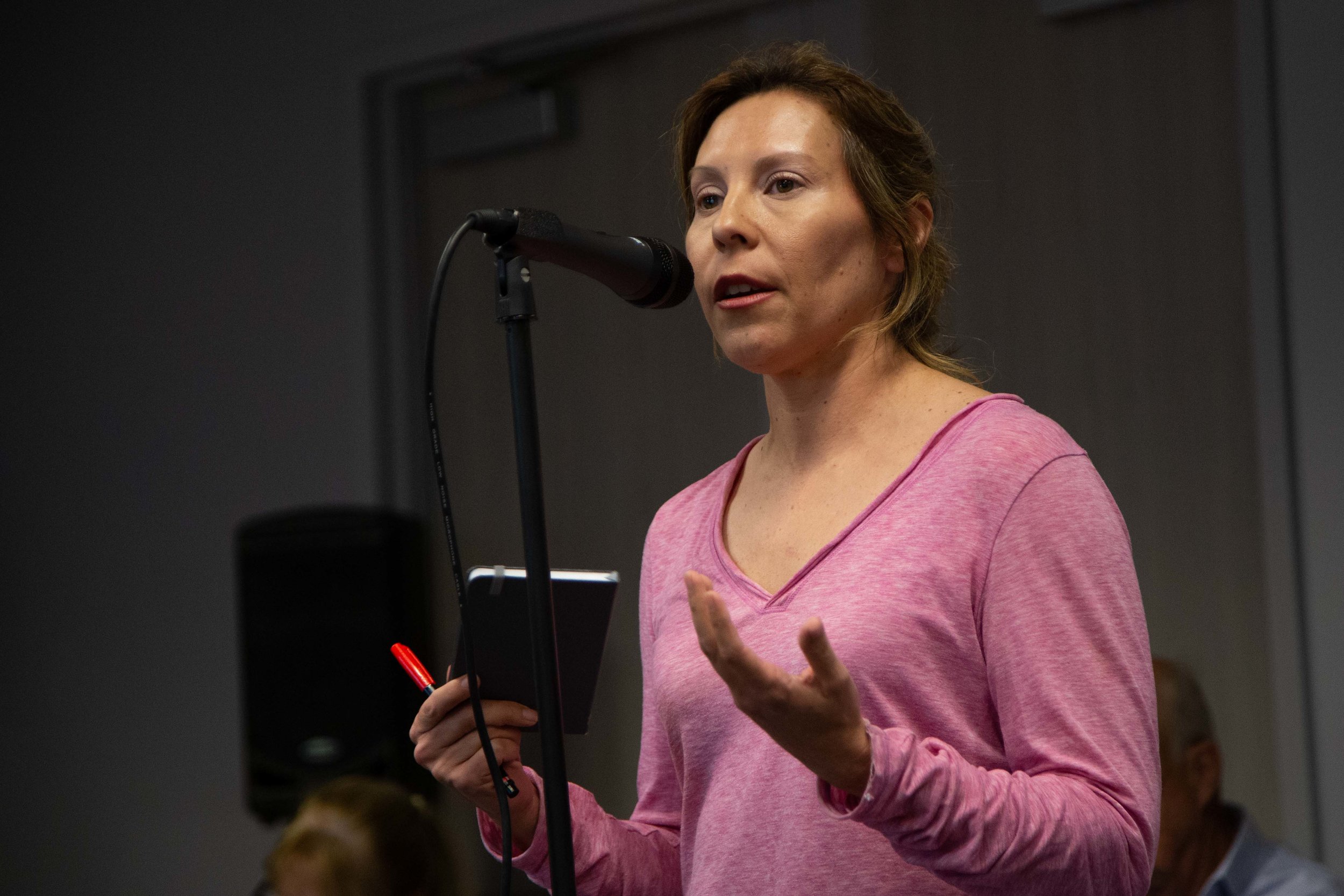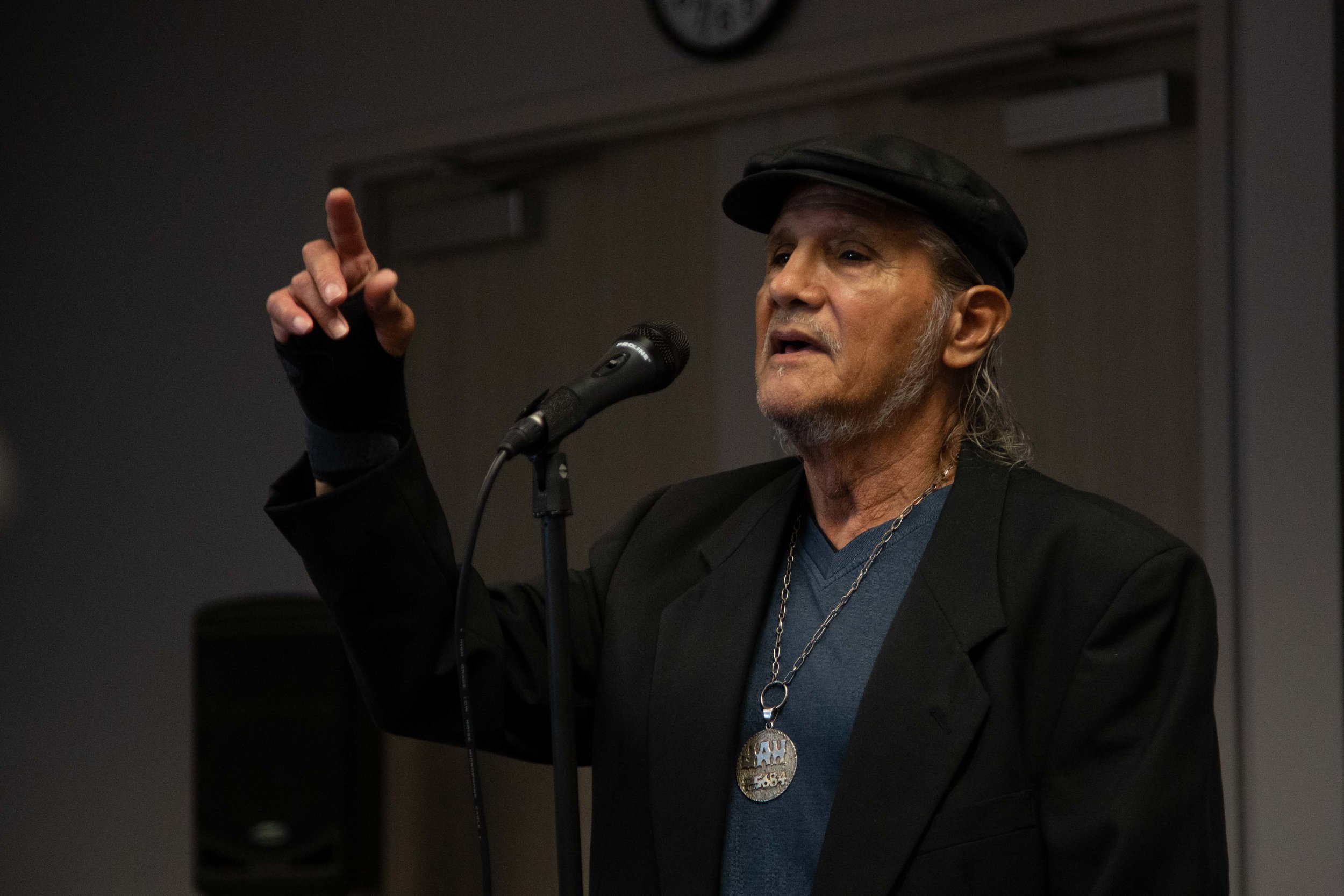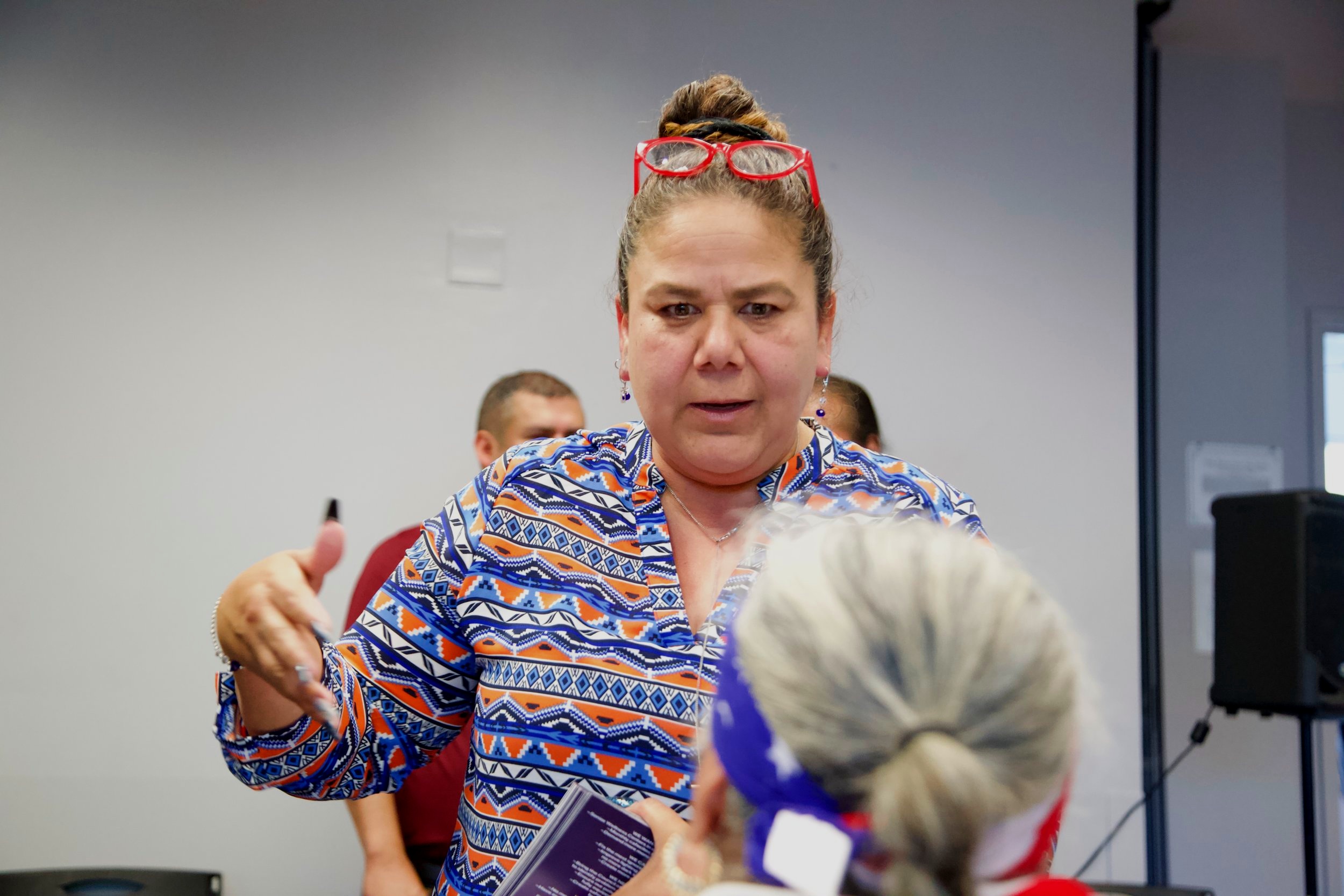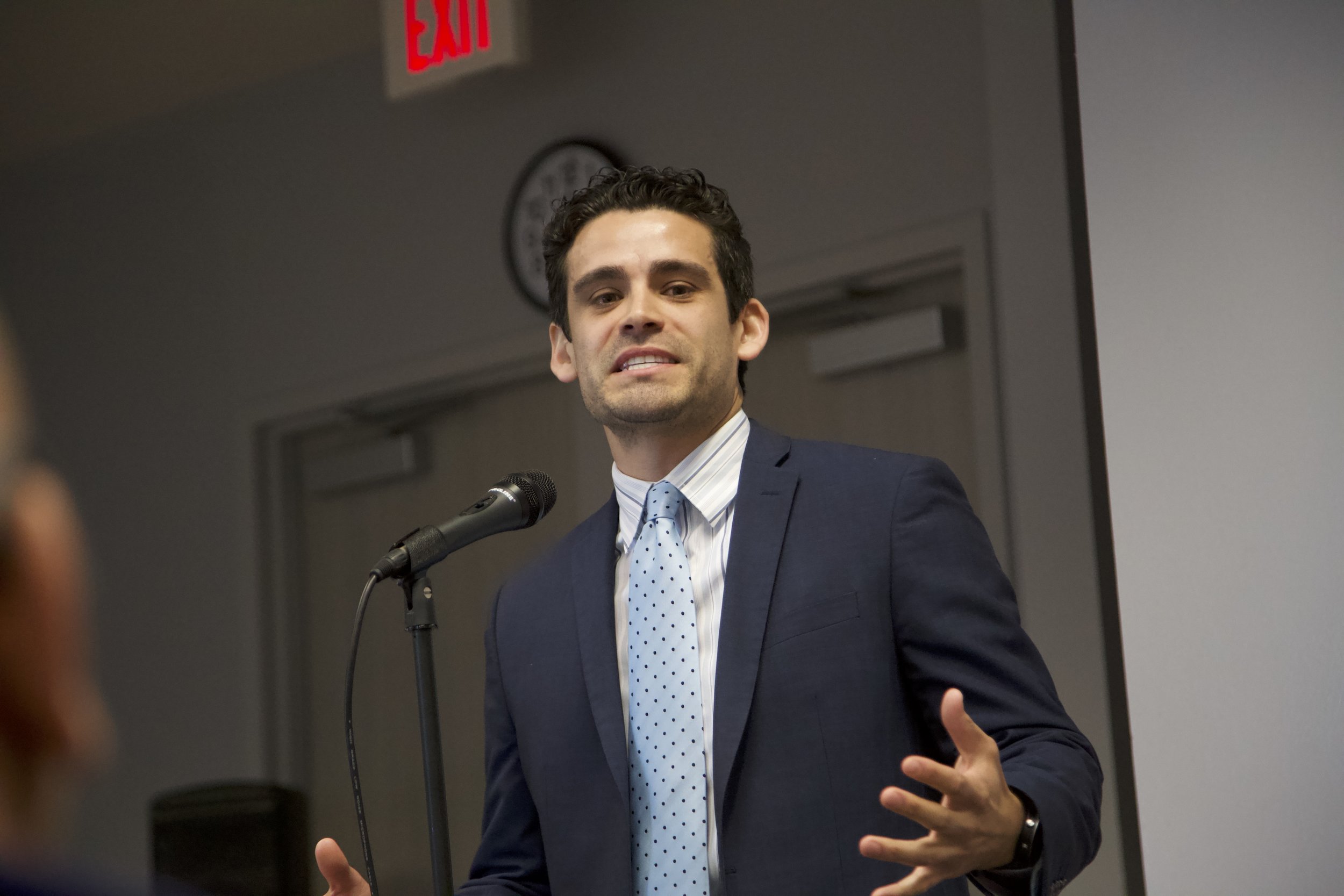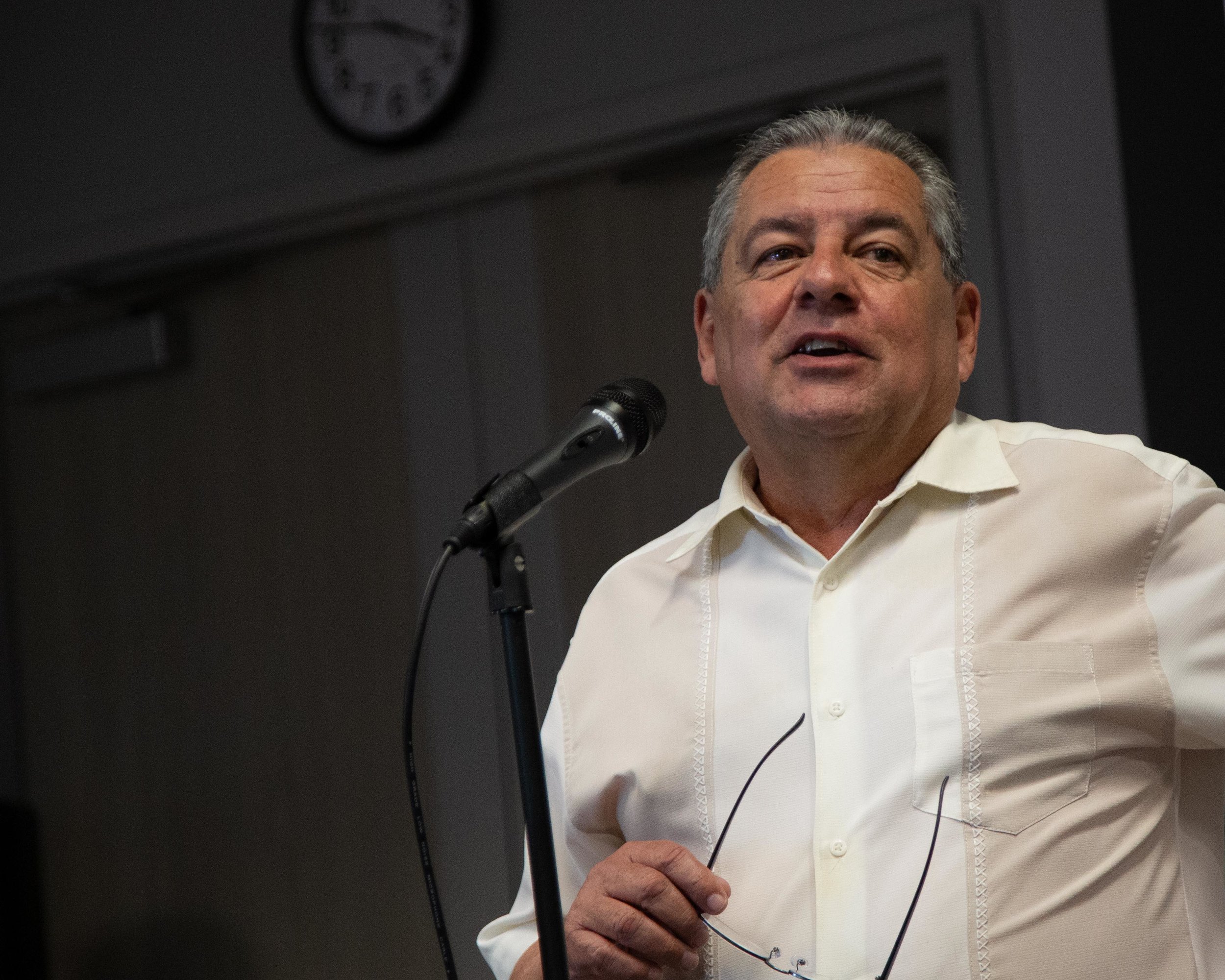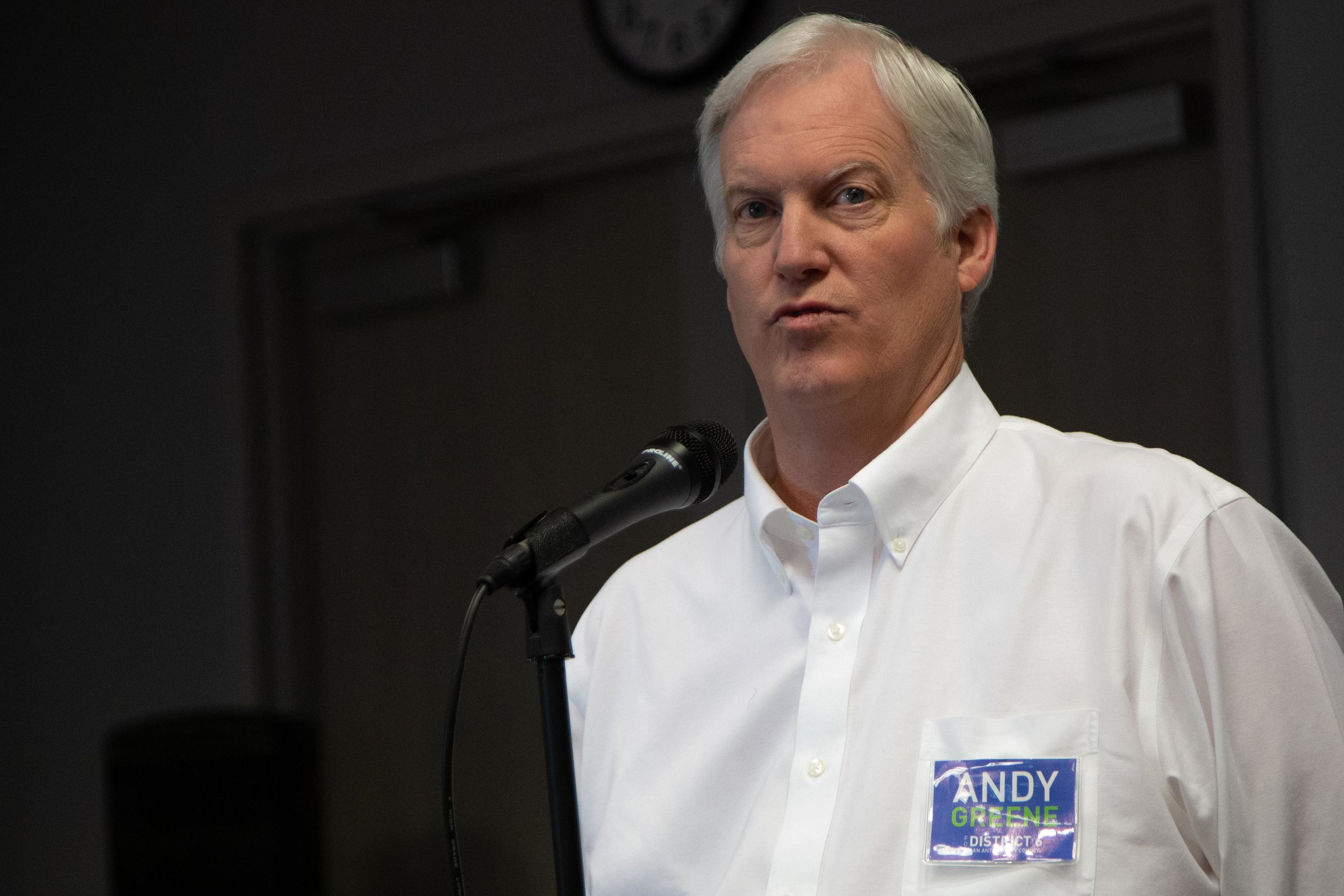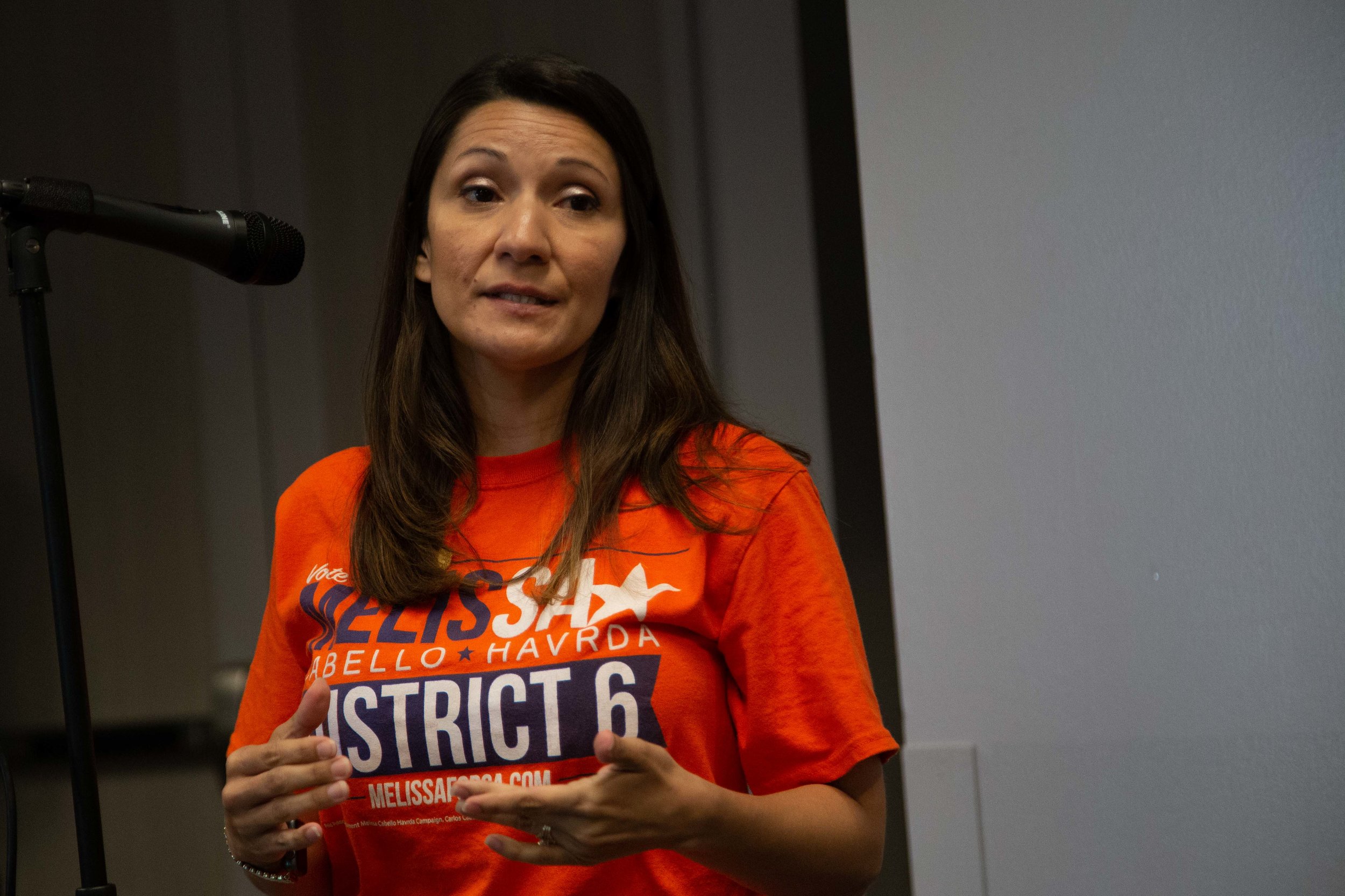Westside Candidate Forum Fills Las Palmas Library
Attendees and organizers take photos with candidates at the forum. (Photo Credit: GA Media Productions)
April 14, 2019 - Las Palmas Library (West SA)
By: Jonathan Guajardo - Editor, San Antonio Sentinel
Within a small meeting room in the Westside’s notable Las Palmas branch library, citizens gathered to commiserate with and listen to an array of candidates vying for the District 5 & 6 Council seats as well as the Mayoral election. Wheeling out more folding chairs and crowding into the back of the library’s main meeting room, the crowd prepared to hear the candidates arguments about why they should be elected to public office. The space, although small, served as the perfect stage for the meet and greet event as it drew the people together with the candidates in an environment where the prospective and current politicians were almost forced to rub shoulders with each other.
Mayor Nirenberg poses for a selfie. (Photo Credit: GA Media Productions)
Before the forum began, those in attendance received a visit from current Mayor Ron Nirenberg who would not stay for the rest of the event but wanted to make a brief appearance at the beginning for the Meet and Greet portion. Traversing up and down each row of seats, the sitting Mayor greeted his constituents, shaking hands and pausing for selfies with various guests before making his exit as the forum was about to begin.
Velma Pena of the hosting Westside Neighborhood Coalition began the meeting by explaining that the coalition had distributed index cards around the room during the 30-minute meet and greet portion of the event and encouraged concerned citizens to write down any questions they wanted to hear the candidates answer during the forum portion of the afternoon. She stated that each candidate would receive one minute to introduce themselves followed by a questioning portion where they would answer the questions received from the audience’s notecards.
DISTRICT 5 CANDIDATES
District 5 was the first cohort to take the stage. Candidates in attendance for this district included Jilma “Jill” Davila, Anthony Gres, Shirley Gonzales (incumbent), and Nazirite Ruben F. Perez, who joined the discussion after sitting in the back for the first two rounds of questioning. In total, the candidates had to answer six questions, beginning with, “Why is the near westside experiencing displacement of the poor and what is your solution to this problem?” Jill Davila’s response emphasized her desire to include the community in the decision making process: “I’m not really sure what the solution would be. I’m a big fan of meetings. It’s easy for me to say what I would like to do, but I would love to hear from the community and the people.” Anthony Gres’ response invoked the oft-feared topic of gentrification by stating that the problem has been caused by “allowing big businesses to come in and buy out all the properties here.” Shirley Gonzales’ response dealt with housing problems facing the district. “The displacement thats occurring in our neighborhoods today is because people cannot live in their homes, they’re in such a state of disrepair,” stated Gonzales. She further emphasized that her solution would be to invest more in current owner occupied rehab programs.
Two yes or no type questions were asked of the candidates throughout the rounds of questioning. The first was, “Are all candidates registered to vote and have they done so?” All candidates replied “Yes” to this question. The second was, “Do all candidates live in the District 5 area?” All candidates responded “Yes” to this question as well, with Shirley Gonzales placing an emphasis on her family’s ownership of a local pawn shop in the district and Gres making the point that he was also a small business owner. Gres however made a distinction between his company and Gonzales’ business by jabbing, “I wasn’t given a business, I created a business.”
When asked what the candidates would do about the issue of electric scooters and if they would vote to ban them, the crowd let out an audible gasp as they craned to hear the candidates answer to such a hot-button issue. Remarking, “I believe that people need access to our streets whether you own an automobile or not,” Gonzales provided her endorsement of the scooter companies. Jilma Davila also voiced her support for the scooters, emphasizing that “education is key” and that people just need to be better informed about the issue. Gres deferred the question and instead responded on the plight of Via bus routes in the District. He noted that the money being spent on scooters would be better served on a Via initiative to incorporate plug-in charging stations for electric wheelchairs on all bus routes. Perez then had the opportunity to answer his first question of the afternoon and answered that he would need to see public input on the matter before making a decision one way or the other.
Two other issues addressed in the District 5 discussion had to do with recent demolitions in the westside of the city and the lack of sidewalks on North San Gabriel Street. In regards to the demolition question, Gonzales defended her record stating, “Council has no say in whether a demolition happens.” Jilma declared that she was “not completely opposed to demolitions,” but would “like to see if there are alternatives.” Gres stated that he has “noticed an increase in demolitions,” and that he would address the issue by examining the district and determining which parts could be considered historical landmarks and therefore not eligible for demolition.
Concerning the issue of sidewalks on N. San Gabriel, Gonzales stated that two years ago she made an equity based budget which would go towards fixing infrastructure issues in the areas of town that needed it most. Gres retorted, “if all this money has been secured, why hasn’t anything been done yet?” Davila and Perez again deferred to the judgment of the people, adding that they would like to meet with their constituent base to have a community discussion on the topic.
DISTRICT 6 CANDIDATES
Candidates for District 6 included Mario Adame, Andy Greene, Melissa Havrda, and Bobby Herrera. This section would prove to be notably shorter than the last one, with only four rounds questions being asked of the potential city leaders. The first question posed dealt again with the demolition of existing homes: “How will you deal with developers who want to demolish homes?” The first candidate to respond, Andy Greene emphasized that “not every house can be saved.” Havrda stated that she would spare a lot of time and attention on older neighborhoods and would try to help people keep their homes. Adame stated that he witnessed gentrification happen in Austin and that it resulted in the average citizen feeling like they are being forgotten about due to increasing property taxes on homes that residents have owned for generations. Herrera’s response mostly had to do with increasing exemptions allocated to alleviate the burden of property taxes. “I want to go back into office to set precedence. Right now we have a $5000 exemption. Why not raise it up to an $18,000 or $20,000 exemption?”
The key question of the afternoon for District 6 had to do with Old Highway 90, now called Enrique Barrera Parkway. All candidates emphasized their support to change the name back to Old Highway 90. Havrda and Green both stated that they would listen to the community’s opinion on the matter and, if their constituents truly voiced their desire to undo the name change, would push for the change back to Old Highway 90. The most interesting audience reaction of the afternoon came after Green stated that he had worked for the council members who changed the name in the first place. The crowd lobbed a barrage of boos and hisses at the candidate before he stated that he would support changing the name back if the community wanted to do so.
In regards to supporting the growth of small businesses within the district, all candidates emphasized that it was among their top priorities and that they would like to see more businesses moving to the district.
The final question of the round had to do with displacement of the poor in the westside and what the candidates would do to solve the issue. Adame stated that the cycle of poverty had to be broken and this could be accomplished by investing more into the district’s high schools and education system. Greene remarked that even though District 6 isn’t in the near westside, “we need to work on the city as a whole.” Havrda emphasized that children need to be encouraged to move back home to the district they grew up in and invest in the district themselves. Herrera voiced his desire for equality, articulating that, “everybody should be equal across the board,” and that one side of the city shouldn’t suffer while the others flourish.
MAYORAL CANDIDATES
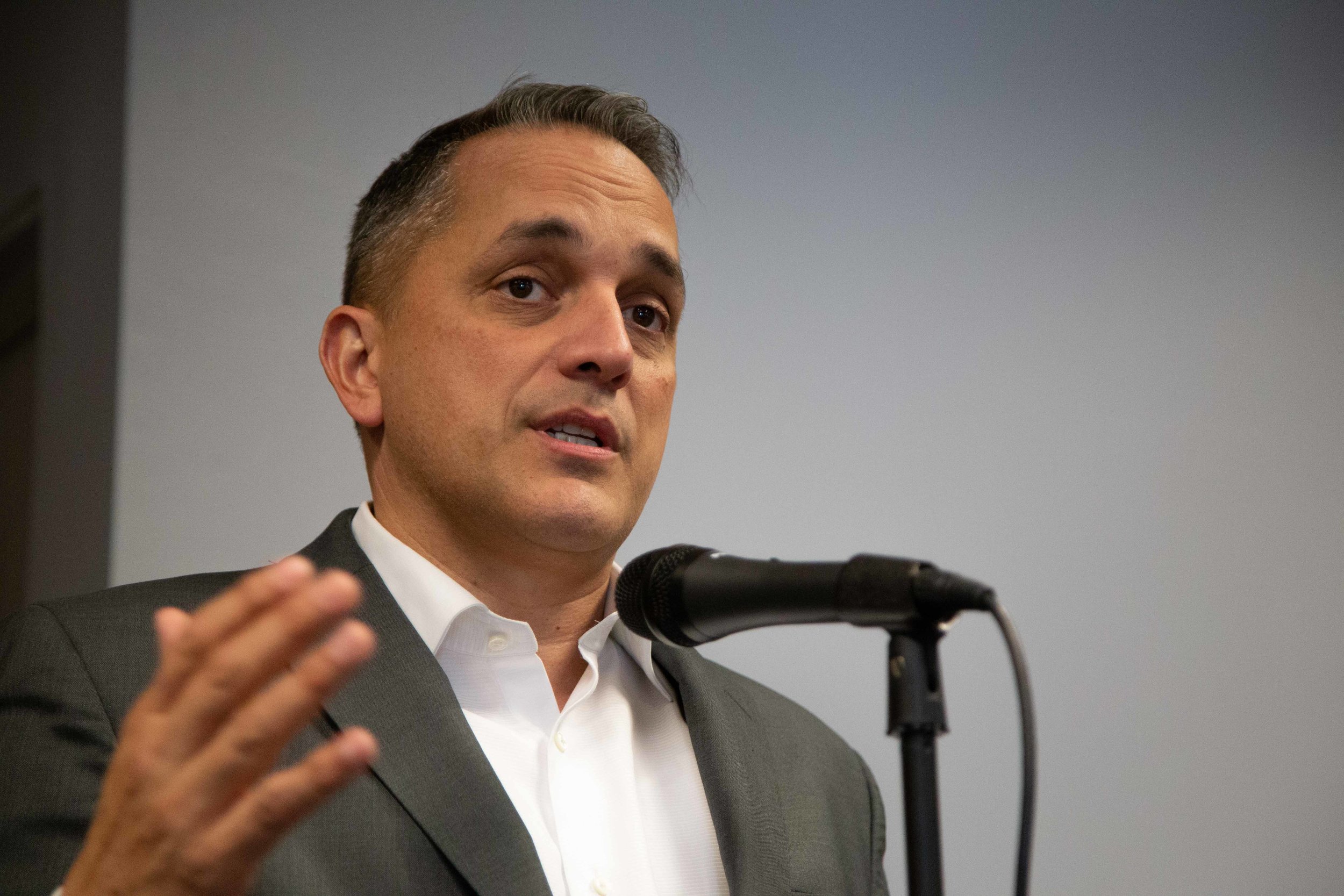
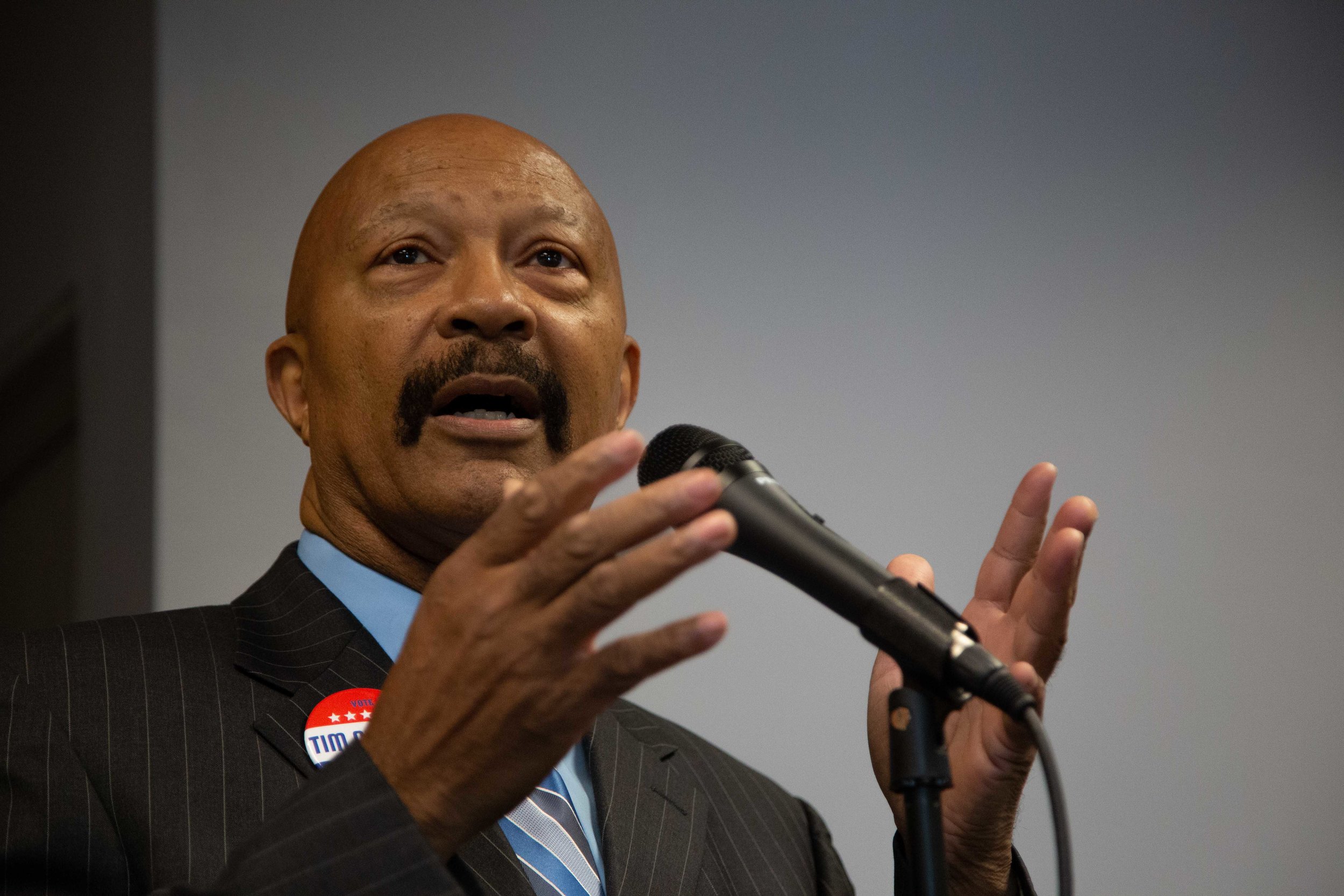
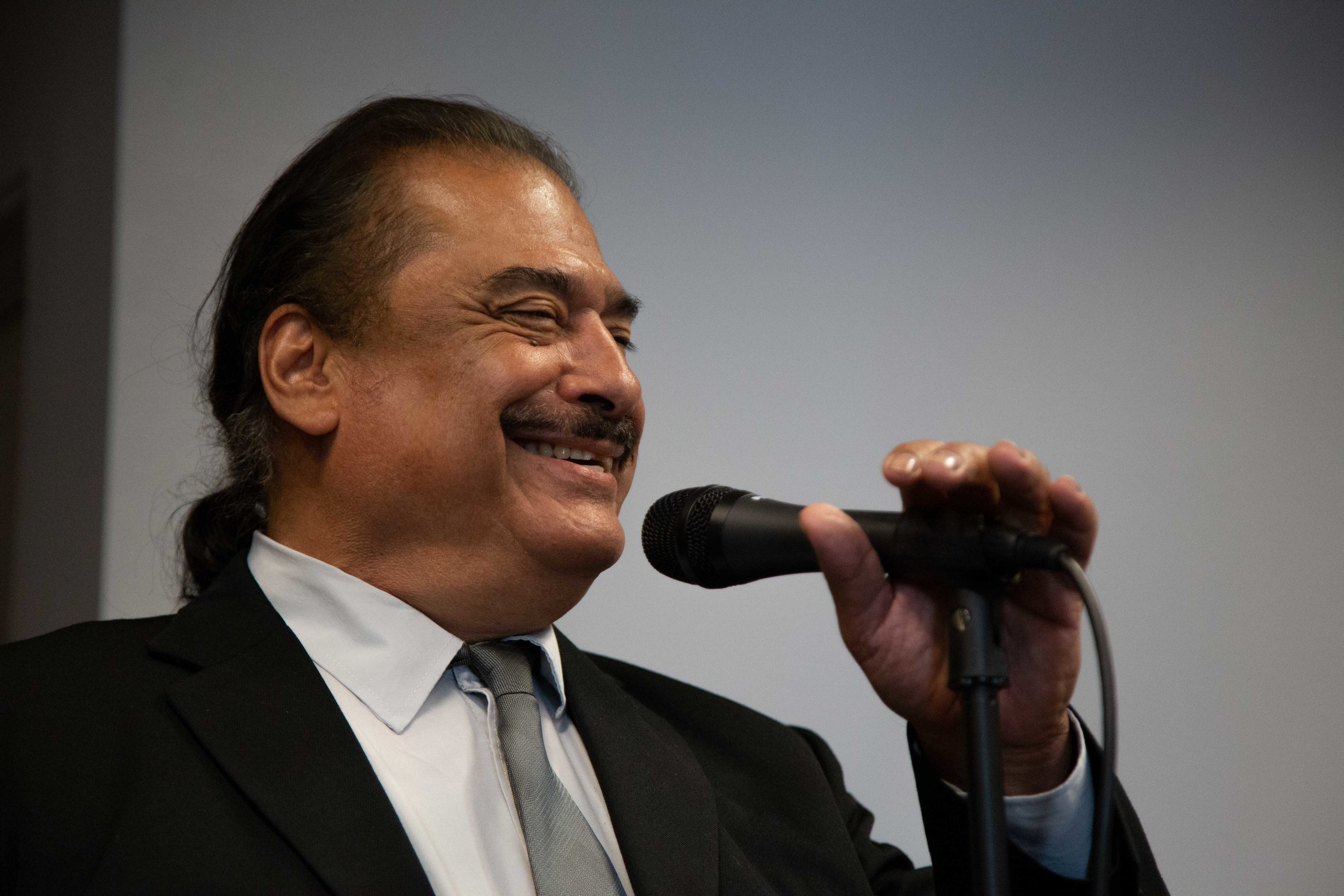
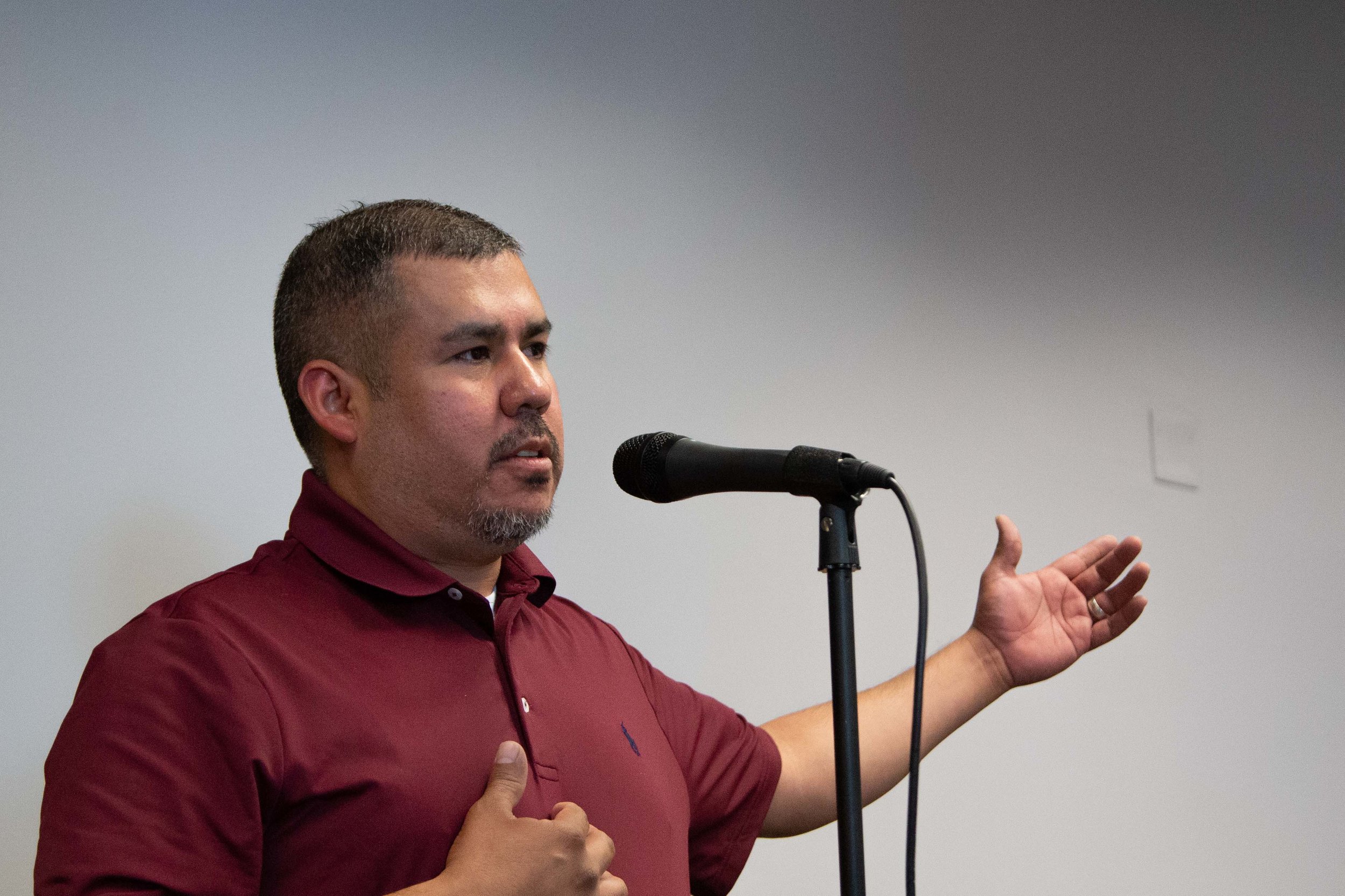
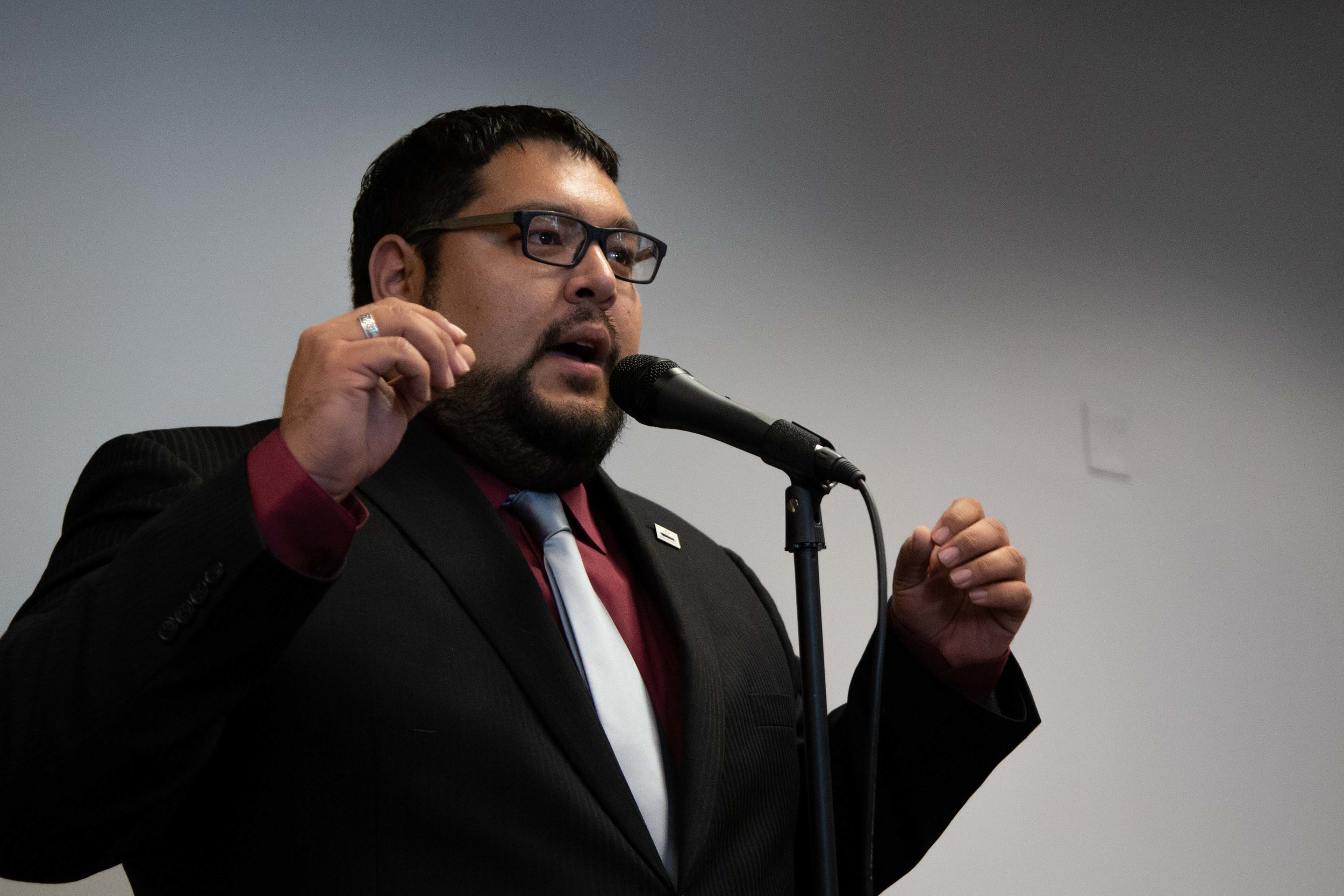
After the District 6 candidates had returned to their seats, the meeting turned to an impromptu intermission to allow constituents to shake the hands of the District 6 hopefuls and talk to them one-on-one. Eventually, however, the forum was called to order and the four mayoral candidates in attendance shuffled to their seats at the front of the room. As the first line of questioning was about to begin, the audience murmured, wondering if they would get to hear from either of the two frontrunners. Nirenberg, who had departed from the debate earlier, would not be returning. Councilman Greg Brockhouse, however, had declared that he would be in attendance for the mayoral questioning portion, but had yet to show at Las Palmas. Despite his absence, the forum would continue on.
Led by Tim Atwood, a middle school Spanish teacher, the four candidates stepped up one-by-one to the microphone and introduced themselves to the crowd. After their introductions had finished, they faced a critical first question: “How will you help senior citizens feel safe?” Castanuela went first and responded that he would advocate for the addition of cameras to areas where seniors are present. Pina followed up with crime statistics and an emotional appeal, recalling how he had lost two friends to murder and the way to solve this issue would be “all about community.” Atwood, stating “I am a senior citizen!,” declared that he would like to see more of a police presence in areas where seniors are present and more neighborhood watch associations formed. Diaz echoed Atwood’s sentiments by stating that he too would like to se a higher police presence and that the problem could further be addressed by “putting some more money into the safety budget.”
As they were about to move the line of questioning to the next round, the solid gray door to the far right of the candidates swung open and in walked Brockhouse stating that he was late because his Palm Sunday mass ran over time. Taking a seat behind the podium, the organizers shuffled to accommodate the councilman, moving the podium further to the left so he wouldn’t be blocked from the view of the crowd. They then had Brockhouse answer the previous question about senior citizens and safety. Brockhouse addressed the issue by pointing out that “safety for residents means a lot of different things.” Further explaining his position, he emphasized that safety issues could have to do with things such as animal control, infrastructure, broken sidewalks, etc. In a routine dig at Nirenberg, he later stated, “The mayor will tell you that crime is on the decline and it’s the lowest it’s been in 30 years, and I’ll tell you the number one ranked crime city in the nation among the top 15 cities is San Antonio. Period.”
Attendees take photos of the candidates during the forum. (Photo Credit: GA Media Productions)
The next question dealt with the demolishing of old homes by developers and what the candidates would do to address this problem. Pina began by describing a proposed tax break centered around the homestead act and emphasizing that we would have to teach residents how to fight appraisals. Brockhouse expressed his view that lower property tax relief is the answer and that, “what really matters is that people don’t get priced out of their home.” Atwood noted that the city council has to “be willing to say no to a developer” after looking at the pros and cons of a proposed development plan. Diaz replied that the city has to stop incentivizing developers to move in. Castanuela stated that he would like to develop inside of the city and grow out, using an analogy of an apple with a rotten core which received no response from the crowd of about 60 in attendance.
The next question, aimed at Councilman Brockhouse, asked, “What will you do to resolve the firefighter’s dispute?” Brockhouse responded by stating that we need to restore “broken trust” between the city and the firefighters and police and fire unions, which are there to “protect workplace rights and fight for the people.” Atwood stated that things are worse because negotiating teams are insulting each other and that “there can be no negotiation without compromise.” Diaz advocated for the firefighters association proposals because he sees them as beneficial to the people, while Castanuela said he would have to talk to other cities and see what methods they use to negotiate with unions. Pina echoed some of Brockhouse’s sentiments, acknowledging that “firemen are still people” and declaring that trust needed to be rebuilt between the two parties.
The next question had to deal with dealing with developers again and asked, “As mayor, will you continue to give big tax abatements to developers?” Atwood answered with a “Yes and No,” stating that the council will have to weigh the options and be willing to say no to a developer if need be. Diaz answered “No,” but went on to say that he would be willing to talk with developers if they were to hire a local workforce. Castanuela responded with a “No” as well, but said that he would have to hear the developers out and see what their projects would do for the city as a whole. Pina described the question as “more of an economic issue,” and emphasized that the city is selecting certain groups to benefit more from these developments that others. Rounding out the questions Brockhouse answered with, “It’s not the incentive that’s bad, it’s the policy behind it and where we put the money and how we hold people accountable.” He followed up with, “As long as we’re positive on it at the end of the day and we’re not hurting the people that currently live there, then we’re going to do an incentive. We have to do it and we’re going to bring big business to the city.”
Tim Atwood gives his closing remarks. (Photo Credit: GA Media Productions)
Although not usually where you would expect to find heated political rhetoric, the candidates closing statements burned with tension and animosity. Diaz went first and emphasized that he was thankful for being included in this forum before ending his statement with an attack on Brockhouse. “Mr. Brockhouse is also a part of the problem,” assailed Diaz. “Because some of these policies that are in place now, he’s been a part of. So if you vote for him or you vote for Nirenberg, you’re going to get more of the same. If you want change you need to vote for that change. I am that change.”
Castanuela also used his closing statement to take a jab at Nirenberg. “Ron is doing a lot of stuff for the Northside. He don’t care about the Westside, Southside, or Eastside!” asserted Castanuela. “And Brockhouse is gaining all his money from the fire union and the police union.”
Pina, one of only two candidates to not attack his opponents in his ending remarks, addressed his belief that San Antonio lacks “mental freedom.” Clarifying his remark, he says that the city needs a leader who can address this problem and make citizens realize that change is possible in the Alamo City.
Brockhouse poses for a picture after the forum. (Photo Credit: GA Media Productions)
In an apparent response to his opponent’s attacks, Brockhouse led with, “At the end of the day, leadership is getting involved in action over a period of time, not just showing up because its an election and you want your name on the ballot, and then getting a vote and disappearing for a couple of years and then coming back and asking for that same vote again.” Rounding off his statement, he retorted, “At the end of the day, it’s going to be myself or Ron Nirenberg that’s mayor on June 1st. There’s absolutely no disputing that.”
“At the end of the day, it’s going to be myself or Ron Nirenberg that’s mayor on June 1st. There’s absolutely no disputing that.”
Cool and collected as ever, Tim Atwood recalled that in 2017, 90% of the registered voters in San Antonio didn’t even vote. He then encouraged everyone present to tell their friends and family members to go vote. “That’s your responsibility as a citizen of San Antonio,” declared Atwood, before finishing his closing remarks and taking his seat to end the forum.


